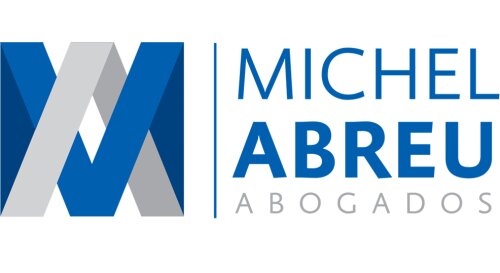Best Corporate & Commercial Lawyers in Punta Cana
Share your needs with us, get contacted by law firms.
Free. Takes 2 min.
List of the best lawyers in Punta Cana, Dominican Republic
About Corporate & Commercial Law in Punta Cana, Dominican Republic
Corporate and commercial law in Punta Cana, Dominican Republic, is a branch of legal practice that governs the formation, operation, and regulation of companies, as well as business transactions and commercial activities. Punta Cana, as a major tourism and business hub, attracts both local and international investors seeking to establish companies, acquire property, or participate in commercial activities. The Dominican legal system is based on civil law principles, and specific regulations govern corporate structures, investment, employment, taxation, and real estate in commercial contexts.
Why You May Need a Lawyer
Engaging in corporate and commercial activities in Punta Cana can be complex, particularly for foreign individuals and companies. You may need a lawyer for situations such as:
- Incorporating a company or establishing a branch or subsidiary
- Negotiating and drafting commercial contracts and agreements
- Buying or selling a business or assets, including hospitality enterprises
- Mergers, acquisitions, and joint ventures
- Due diligence and compliance with local regulations
- Resolving partnership or shareholder disputes
- Intellectual property protection and licensing
- Labor and employment law compliance for business operations
- Tax planning and registration with local authorities
- Navigating foreign investment laws and incentives
Legal advice helps ensure your business is properly structured and compliant, reducing risks and facilitating smooth operations.
Local Laws Overview
Dominican Republic’s commercial and corporate laws are governed by the Commercial Code, specific statutes, and various regulations. Key aspects relevant to Punta Cana include:
- Types of Business Entities: The most common legal forms for business are the Sociedad Anónima (SA), Sociedad de Responsabilidad Limitada (SRL), and Individual Empresario (sole proprietorship). Each structure has specific requirements for registration, minimum capital, and governance.
- Foreign Investment: The Foreign Investment Law (Law 16-95) allows foreign individuals and companies to have the same rights as locals, with incentives available for certain sectors like tourism and free zones.
- Contract Law: Contracts are typically governed by Dominican law, and must comply with local requirements regarding language, validity, and enforcement mechanisms.
- Real Estate Transactions: Real estate acquisitions for commercial purposes, especially in tourism zones like Punta Cana, require careful due diligence and often involve additional governmental approvals.
- Taxation: Businesses must register with the Dirección General de Impuestos Internos (DGII) and comply with local taxes, including the Impuesto Sobre la Renta (ISR) and value-added tax (ITBIS).
- Employment Laws: Dominican labor laws provide protection for employees, including minimum wage, severance payments, and mandatory benefits.
- Regulatory Compliance: Tourism and hospitality businesses are regulated by the Ministry of Tourism (MITUR) and may need special permits or licenses to operate.
Staying informed and compliant with these laws is crucial for anyone doing business in Punta Cana.
Frequently Asked Questions
What are the steps to incorporate a company in Punta Cana?
You need to choose the appropriate legal structure, reserve the company name, prepare and notarize the company bylaws, deposit the minimum capital, register with the Chamber of Commerce, obtain a tax ID, and register with social security authorities.
Can foreigners fully own businesses in Punta Cana?
Yes, foreigners can fully own businesses and enjoy the same legal protections as Dominican nationals, subject to statutory requirements and sector-specific regulations.
What are the main types of business entities?
The most common are limited liability companies (SRL), joint-stock companies (SA), and individual enterprises. Each has different formation and governance requirements.
Are there special incentives for tourism-related businesses?
Yes, the CONFOTUR law offers tax incentives and exemptions for qualifying tourism projects, including hotels, restaurants, and resorts in designated zones like Punta Cana.
How are commercial disputes resolved?
Commercial disputes in Punta Cana are typically resolved through the local civil courts. Alternative methods such as arbitration and mediation are also recognized and increasingly used.
What taxes must a company pay?
The main taxes include corporate income tax, value-added tax (ITBIS), and payroll-related taxes. Some sectors may have additional taxes or enjoy exemptions based on specific laws.
What employment obligations do companies have?
Companies must comply with Dominican labor laws, including employment contracts, minimum wage, social security contributions, vacation, and severance pay requirements.
What is required for a foreigner to be a director or shareholder?
Foreigners can be directors or shareholders without residency requirements. However, their identification documents need to be properly certified and sometimes translated for official filings.
Is it necessary to have a local partner to do business?
No, there is no legal requirement to have a local partner unless local ownership is mandated for certain restricted sectors, which is rare in Punta Cana’s main industries.
How long does it take to set up a business?
The process generally takes between two to four weeks, depending on the complexity of the company structure and the completeness of documentation.
Additional Resources
If you need further guidance, the following resources may be helpful:
- Chamber of Commerce and Production of La Altagracia (Cámara de Comercio y Producción de la Altagracia) - for company registration and business resources
- General Directorate of Internal Revenue (Dirección General de Impuestos Internos - DGII) - for tax registration and compliance information
- Ministry of Tourism (Ministerio de Turismo) - for tourism business regulations and incentives
- National Office of Industrial Property (Oficina Nacional de la Propiedad Industrial - ONAPI) - for intellectual property matters
- Local business associations and professional networks in Punta Cana
Next Steps
If you are planning to start or expand a business in Punta Cana, or have commercial legal concerns, follow these steps:
- Define your business objectives and preferred legal structure
- Gather all relevant documents, including identification and proposed company bylaws or agreements
- Consult a qualified corporate and commercial lawyer with experience in Punta Cana’s legal environment
- Review legal requirements and timelines for company formation, licensing, or commercial transactions
- Ensure ongoing compliance with tax, labor, and sector-specific regulations by maintaining regular legal support
Seeking professional legal advice early can save time, avoid costly mistakes, and position your venture for success in Punta Cana.
Lawzana helps you find the best lawyers and law firms in Punta Cana through a curated and pre-screened list of qualified legal professionals. Our platform offers rankings and detailed profiles of attorneys and law firms, allowing you to compare based on practice areas, including Corporate & Commercial, experience, and client feedback.
Each profile includes a description of the firm's areas of practice, client reviews, team members and partners, year of establishment, spoken languages, office locations, contact information, social media presence, and any published articles or resources. Most firms on our platform speak English and are experienced in both local and international legal matters.
Get a quote from top-rated law firms in Punta Cana, Dominican Republic — quickly, securely, and without unnecessary hassle.
Disclaimer:
The information provided on this page is for general informational purposes only and does not constitute legal advice. While we strive to ensure the accuracy and relevance of the content, legal information may change over time, and interpretations of the law can vary. You should always consult with a qualified legal professional for advice specific to your situation.
We disclaim all liability for actions taken or not taken based on the content of this page. If you believe any information is incorrect or outdated, please contact us, and we will review and update it where appropriate.
Browse corporate & commercial law firms by service in Punta Cana, Dominican Republic
Punta Cana, Dominican Republic Attorneys in related practice areas.













